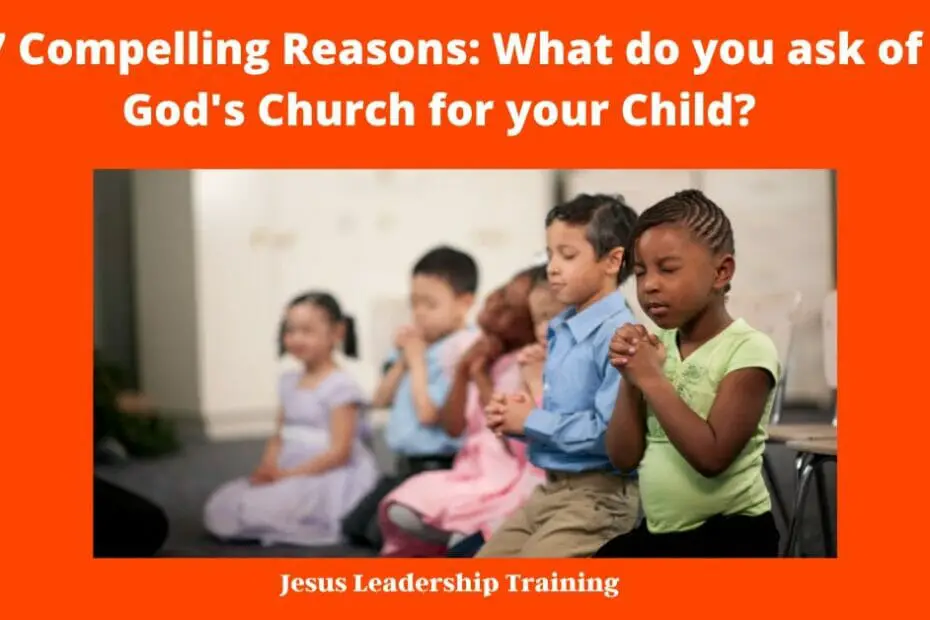What do you ask of God’s Church for your child? What should be the role of the church in your child’s life? What are some specific things you should ask of it? In this blog post, we will explore these questions and provide some guidance on how to make sure that your child gets the most out of their church experience.
Table of Contents
Here is a List of 17 Compelling Reasons:
- A church should be a place where your child can learn about God.
- A church should be a place where your child can learn to love and serve others.
- A church should be a place where your child can grow in their faith.
- A church should be a safe place for your child to explore their spirituality.
- A church should be a place where your child can find acceptance and belonging.
- A church should be a place where your child can develop strong relationships.
- A church should be a place where your child can learn to pray.
- A church should be a place where your child can worship God.
- A church should be a place where your child can serve others.
- A church should be a place where your child can learn about the Bible.
- A church should be a place where your child can develop leadership skills.
- A church should be a place where your child can have fun!
- A Church should Be a Place where they develop Friendships for Life
- A Church might be where your Child finds a Godly Soul Mate
- A Church is a Place of HopeA Church is a Place of Healing
- A Church is a Place of Forgiveness
- A Church can be all these things and more, but most importantly it should be a place where your child can encounter the love of God.

What do you ask of God’s Church for your child?
Christian parents hope and pray that by “training up a child in the way he should go,” when he is old he will not depart from it. (Proverbs 22:06) What a parent really wants for their child is a personal relationship with Jesus Christ that is growing deeper every day.
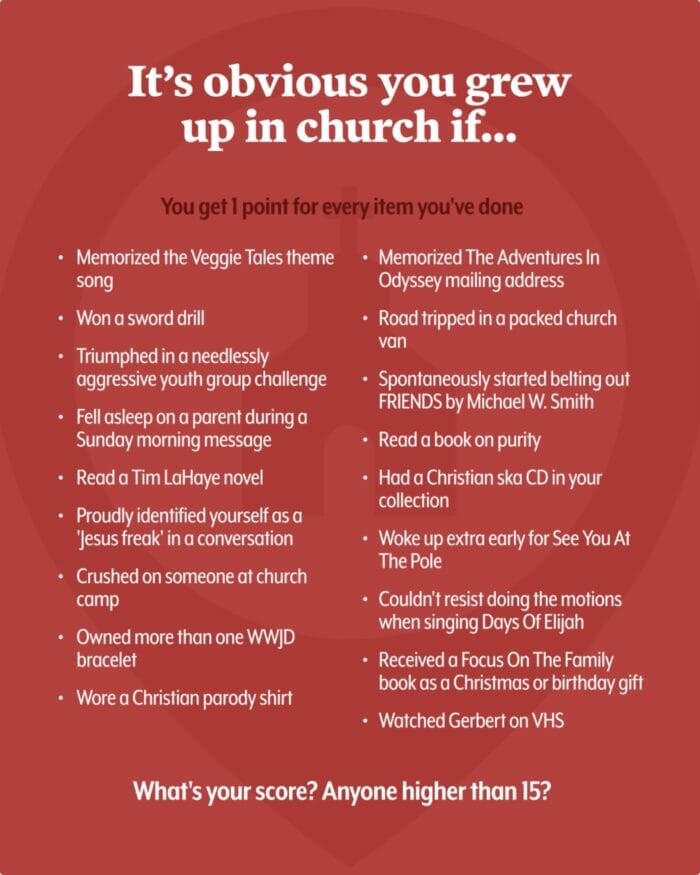
But how do you as a parent ensure that your child’s relationship with Christ continues to grow? And what role should the Church play in this process? What do you ask of God’s Church for your child?
The answer to the first question is found in Colossians chapter one. In verses nine through fourteen, the apostle Paul gives us a prayer that he prayed for the believers in Colossae. This prayer is just as relevant for us today as it was for those early Christians.
And what we see from this passage is that our number one priority should be that our children would “walk in a manner worthy of the Lord, fully pleasing to him.” What does it mean to “walk in a manner worthy of the Lord?” It means living our lives in such a way that brings honor and glory to God. It means living out our faith with integrity and sincerity.
table outlining various ways a church can help young people, according to biblical principles and common practices:
| Things a Church can do to Help Young People |
|---|
| Create Youth-Specific Programs: Offering programs specifically tailored for youth can help them feel more engaged and involved. These could include youth group meetings, Bible study groups for teens, and service projects. |
| Provide Mentorship: Church leaders or older members can offer guidance and mentorship to young people, helping them navigate life’s challenges from a Christian perspective. |
| Encourage Active Participation: Inviting young people to take active roles in the church, such as participating in the music ministry, assisting in Sunday school, or volunteering in community outreach, can give them a sense of responsibility and belonging. |
| Foster a Safe and Accepting Environment: The church should be a place where young people feel safe to express their thoughts, doubts, and struggles without fear of judgment. |
| Provide Christian Education: Offering classes that teach about the Bible, Christian beliefs, and Christian living can help young people grow in their faith. |
| Invest in Resources for Youth: This might include books, online materials, or spaces in the church specifically designated for young people. |
| Encourage Fellowship: Regular events that allow young people to form friendships with each other can foster a sense of community and make the church more appealing. |
| Address Relevant Issues: Churches can help young people by addressing topics that are relevant to them such as mental health, relationships, and navigating social issues with a Christian perspective. |
Remember, the effectiveness of these actions will depend on the specific needs and characteristics of the young people in a given church community, as well as the overall context of the church.
I Corinthians 15:23 says – Do not be deceived: “Bad company ruins good morals.
- The effects of bad company on good morals
- How to avoid being deceived by bad company
- Examples of how bad company can ruin good morals
- The importance of staying away from bad company
What is the Tradition of Infant Baptism in the Christian faith?
The Tradition of Infant Baptism in the Catholic faith is a very old and beautiful custom. It is believed that when an infant is baptized, they are cleansed of Original Sin and are made members of the Church.
This timeless tradition has been carried out for centuries and is still practiced today. Many parents choose to have their child baptized soon after birth, while others wait until they are a bit older. Typically, the godparents or sponsors of the child will be present at the baptismal ceremony.
They will offer prayers for the child and also help to support the parents in their religious upbringing. The Tradition of Infant Baptism is a special and meaningful way to welcome a new life into the Catholic faith.

What is the meaning of the Sacrament of Baptism?
The Sacrament of Baptism is the first of seven sacraments in the Catholic Church. It is also one of the most important, as it cleanses us of original sin and welcomes us into the Church. In baptism, we are united with Christ and His redemptive work on the cross.
We become new creations in Christ, and our lives are forever changed. The waters of baptism also wash away our sins and allow us to start fresh with a clean slate. This is a powerful sacrament that should not be taken lightly.
Those who are baptized should feel a sense of joy and excitement, knowing that they have been cleansed of all their past mistakes and given a new lease on life. Baptism is a beautiful sacrament that bestows many graces upon those who receive it.
What role does the Parish Priest perform in Catholic Baptism?
A Parish Priest is a Roman Catholic priest who is in charge of a church parish. A parish is a territorial unit consisting of a number of Christian faithful churchgoers who comprise the Christian community, which is worshipping under the leadership of a parish priest.
It is he who ensures that all the liturgical functions are being carried out as they should be in the church. The role of the Parish Priest in Catholic Baptism is to preside over the baptismal ceremony and to administer the sacrament.
He also acts as a witness to the baptisms and signs the baptismal register. In addition, he may give a short homily during the baptismal ceremony, and he will usually offer guidance and support to the parents of the child being baptized.
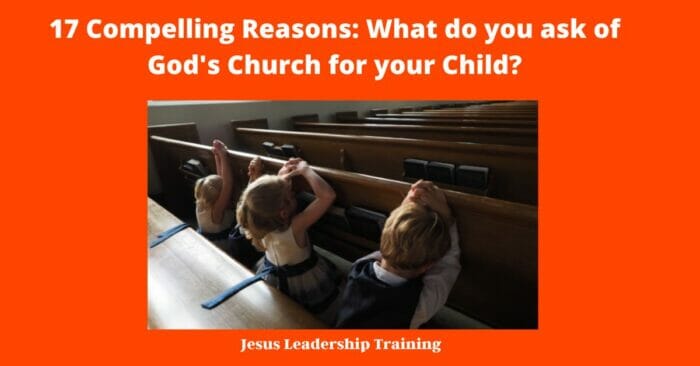
In the Catholic faith what do these represent:
- Baptismal Font – is a basin used for baptism. It is usually made of stone or marble, and it is often decorated with symbols of the Christian faith. The Baptismal Font is a symbol of cleansing and new life.
- Baptismal Candle – is a white candle that is lit during the baptismal ceremony. It represents the light of Christ coming into the life of the person being baptized.
- Baptismal Water – is water that is blessed and used for baptism. It is a symbol of new life and cleansing. The Baptismal Font, Baptismal Candle, Baptism ceremony, and Baptismal Water all represent different aspects of the sacrament of baptism. They are all symbols of new life in Christ and serve as reminders of the graces that are bestowed upon those who are baptized.
- The Sign of the Cross is a very important part of the Catholic faith. It is a gesture that is made by tracing a cross on one’s forehead, chest, and shoulders. The Sign of the Cross is used during prayer, worship, and other religious ceremonies. It is a Practice of the faith for the child of God in god’s church.
- Virgin Mary – is the mother of Jesus Christ. She is a very important figure in the Catholic faith and is revered as a saint.
What is the History of Catechism?
A catechism is a summary of Christian doctrine in the form of questions and answers. The word “catechism” comes from the Greek word katechein, which means “to teach orally.”
In the early church, catechisms were used to instruct new converts in the faith. The first written catechism was the Didache, or “Teaching of the Twelve Apostles,” which dates back to the late first or early second century.
The Didache contains a brief section on baptism and the Lord’s Supper, as well as a list of dos and don’ts for Christians living in a pagan world. In the fourth century, St. Cyril of Jerusalem wrote the first full-length catechism, which included instruction on the nature of God, the Trinity, Christology, redemption, and moral living.
Throughout church history, catechisms have been used as tools for instruction and evangelism. Today, they remain an important resource for believers of all ages who want to learn more about their faith
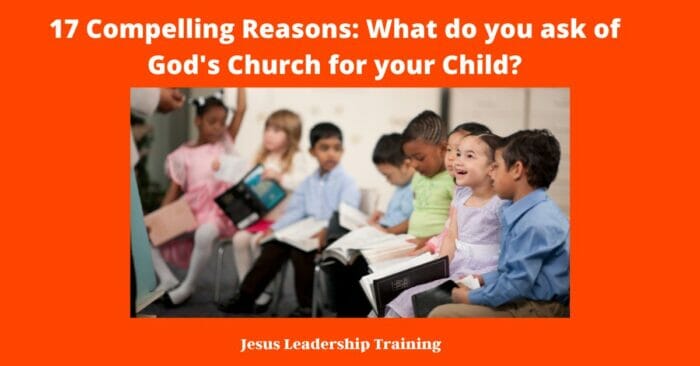
What is the Biblical Teaching of Original Sin?
The term “original sin” is not actually found in the Bible. However, the concept of original sin is clearly taught in Scripture. According to the doctrine of original sin, all human beings are born with a sinful nature. This means that we are all prone to disobey God and do things that are wrong.
The doctrine of original sin also teaches that because of our sinfulness, we are separated from God and deserve His punishment. However, the good news is that through Jesus Christ, we can be forgiven and have our relationship with God restored.
Although the doctrine of original sin may be difficult to understand, it is an important biblical teaching that provides comfort in knowing that we are not alone in our struggle against sin
What is the symbolism of wearing a white garment during Baptism?
There are a number of different interpretations of the symbolism of wearing a white garment during Baptism. One common interpretation is that the white garment symbolizes the purity and innocence of the person being baptized.
This interpretation is based on the idea that baptism is a new beginning, and that the person being baptized is starting their life with a clean slate. Another common interpretation is that the white garment symbolizes the cleansing that takes place during baptism.
This interpretation is based on the idea that baptism is a purifying ritual that washes away sin and cleanses the soul. Regardless of which interpretation you believe, there is no doubt that wearing a white garment during baptism is a powerful symbolic act
What does the word Baptism Mean?
The word “Baptism” comes from the Greek word “baptizo” which means “to dip, to immerse, or to plunge.” Baptism is an act of obedience for the (baptized person)believer. It is an act of faith and identifies us with Christ in His death, burial, and resurrection.
When we are baptized, we publicly identify ourselves as followers of Jesus Christ. Baptism does not save us; salvation comes only through a personal relationship with Jesus Christ by trusting Him as our Lord and Savior. However, baptism is a very important part of the Christian life. It expresses our faith in Jesus and His sacrifice for us on the cross.
It also symbolizes our new life in Christ- that we have been cleansed of our sins and have new life in Him. If you have not been baptized and would like to know more about it, please talk to your pastor or another church leader.
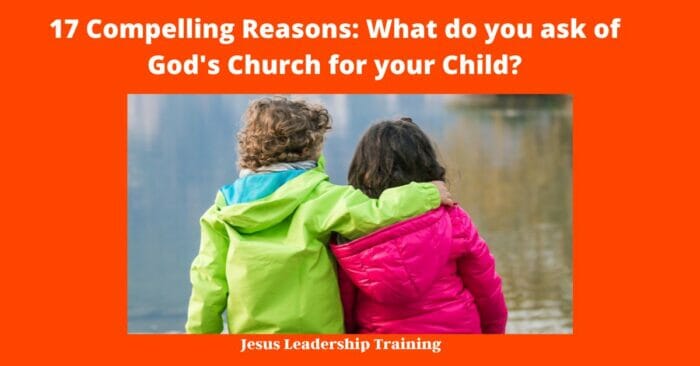
What is the History of the Word Baptizo?
The word “baptizo” is a Greek word that means “to dip,” “to immerse,” or “to plunge.” It is used in both the New Testament and the Septuagint, the Greek translation of the Hebrew Bible. In the New Testament, the word is used primarily in reference to baptism, a practice that was already well-established among early Christians.
The first recorded use of the word in reference to baptism is found in Matthew 3:16, where John the Baptist says, “I baptize you with water for repentance.” The word continued to be used in this way throughout the New Testament, including in Acts 2:38-39, where Peter tells his listeners that they need to be baptized in order to receive forgiveness.
Today, many Christians continue to practice baptism as an act of obedience and commitment to their faith.
In Protestant Churches what is the Belief of “the age of Accountability” for when a Child can be Baptized?
In Protestant Churches, the age of accountability is the belief that a child cannot be baptized until they are old enough to understand and make their own decision about salvation. This age varies depending on the denomination but is typically around 7 years old.
The age of accountability is based on the idea that baptism is a symbol of our decision to follow Christ, and that children are not able to make this decision until they are old enough to understand it. Some churches also believe that baptism is a sacrament that bestows Grace upon the person being baptized and that children are not able to receive this Grace until they are of an age where they can understand it.
Ultimately, the decision about when to baptize a child is up to the parents and the church elders. However, the age of accountability is an important belief for many Protestants and something to consider when making this decision.
How Important did Jesus say Little Children were?
In the Bible, Jesus says that children are important to Him. In the book of Matthew, Jesus says, “Let the little children come to me, and do not hinder them, for the kingdom of heaven belongs to such as these.” This shows that Jesus values children and their innocence.
He also says in Mark 10:14-15, “Suffer the little children to come unto me, and forbid them not: for of such is the kingdom of God…Verily I say unto you, Whosoever shall not receive the kingdom of God as a little child shall in no wise enter therein.”
Here, Jesus is saying that we must have childlike faith to enter into His kingdom. This means that we must trust Him and have faith like a child—simple and pure. Jesus loves children and wants them to come to Him. We must also receive the kingdom of God as little children by having a simple faith in Christ.
In What ways can the Church Help Christian Parents Point their Children toward Eternal Life?
There are many ways that the Church can help Christian parents point their children toward eternal life. One way is through worship and teaching.
By participating in regular worship services, parents can model for their children the importance of faith and a personal relationship with God. In addition, Sunday school and other educational programs offered by the church can provide parents with opportunities to teach their children about the love of God and how to live a Christ-centered life. The Faith of the church should lead families in the name of the father to the body of Christ.
Another way the Church can help is by providing support and fellowship for families. Through small groups, parent-teacher organizations, and other gatherings, parents can develop friendships with other like-minded individuals who can offer encouragement and advice. Lastly, the Church can also help by being a source of hope and peace in times of difficulty.
By praying for families, offering counseling services, and providing financial assistance, the Church can be a source of hope and strength during tough times. Ultimately, there are many ways that the Church can help Christian parents point their children toward eternal life.
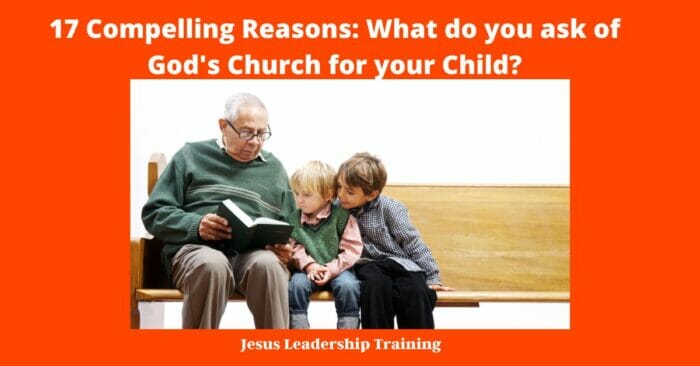
In The Practice of Faith in Protestant and Evangelical Churches, how have they helped in training Children?
Children are the future of any religion. They are the ones who will carry on the practices and teachings of their faith long after their parents and grandparents are gone. For this reason, it is essential that churches provide opportunities for children to learn about and experience their faith.
In The Practice of Faith in Protestant and Evangelical Churches, the author discusses the various ways in which these churches have helped to train children in the practice of their faith.
He argues that these churches have been successful in providing children with a solid foundation in the basics of their faith, and that they have also been effective in helping children to develop a personal relationship with God.
As a result, these churches have played a significant role in shaping the religious landscape of America.
What is the History of Children’s Bible Classes?
Children’s Bible classes have a long and rich history dating back to the early days of the Church. In the New Testament, we see that Jesus welcomed children and even used them as an example of faith (Mark 10:14). In the centuries that followed, the Church continued to place a high priority on teaching children about the faith.
In the Middle Ages, for example, cathedral schools were established specifically for the purpose of providing religious instruction to young people. In more recent times, Sunday school has become one of the most common ways for children to learn about Christianity.
Today, there are also many different organizations and resources available to help parents teach their children about the Bible at home. Whether in a Sunday school class or at home with family, learning about the Bible is an important part of growing up in the Christian faith.
What is the History of Vacation Bible School?
Vacation Bible School, or VBS, is a time-honored tradition in many churches. It is typically held during the summer months, when children are out of school and families are more likely to be on vacation.
VBS usually lasts for one week and focuses on teaching children about the Bible through a variety of activities. Most VBS programs include Bible stories, songs, crafts, games, and snacks. In recent years, some churches have also started offering child care during VBS so that parents can participate as well.
VBS has its roots in the 19th century, when Sunday schools began offering summer programs to keep children engaged in learning during the long vacation months. These early programs were typically held outdoors and focused on teaching moral values through Bible stories and songs.
By the mid-20th century, VBS had become a staple of American church life, and it remains popular today. According to a recent survey, nearly two-thirds of all churches in the United States offer some form of VBS program. Whether your church has been offering VBS for decades or is just getting started, it’s clear that Vacation Bible School is here to stay!
Today in what ways do Children’s Ministries Help Christian families?
Children’s ministries help Christian families in many ways. They provide a place for children to learn about God and the Bible. They also offer programs and activities that help children grow in their faith.
Additionally, children’s ministries often partner with parents to provide resources and support. This partnership helps families to raise their children according to Christian values. Ultimately, children’s ministries play an important role in supporting Christian families and helping them to thrive.
Today in Many churches parents drop off their children at a safe and secure Childrens Program. The Children Participate in;
- Singing
- Bible Games
- Bible Crafts
- Learning the Bible
- Learning to Pray
- Learning to give
It is all focused on children helping on their own level to be taught about Jesus. I visited one congregation and met with their Children’s Ministry director. Each Weekend they taught over 1300 children about God.
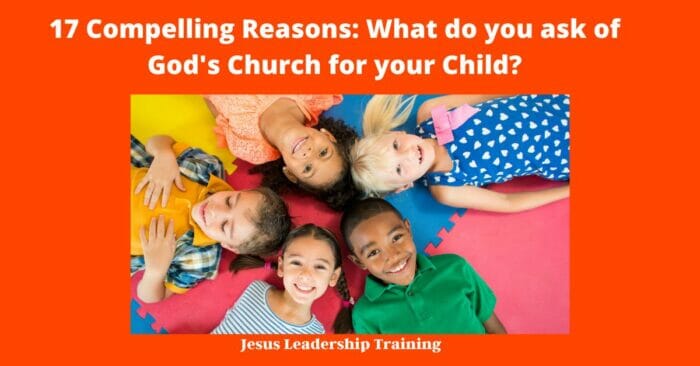
What is the Purpose of Church Youth Rallies?
There are various types of church youth rallies, but their common goals are to evangelize to non-churchgoers, teach correct doctrine, and instill moral values in participants. Rallies usually feature musical performances, guest speakers, skits, and games.
They may be a one-time event or part of a series. Although rallies can be fun and entertaining, their ultimate purpose is to strengthen participants’ faith and help them grow closer to God. By attending a rally, youth can learn about God’s love for them, explore their own spirituality, and find support from other teens who share their beliefs.
In addition, rallies provide an opportunity for church leaders to connect with young people and answer any questions they may have about the faith. Ultimately, church youth rallies serve as an important tool for evangelization and discipleship.
How to Involvement in Teen Classes Help Support our Childs’ Christian walk?
As a parent, you want what is best for your children and you likely want to support their Christian walk. One way you can do that is by getting them involved in teen classes at church.
Doing so will help them grow in their faith and learn more about God. In addition, they will be around other teens who share their beliefs. This will allow them to form friendships with like-minded people and they can support each other in their faith.
Additionally, teen classes often include service projects. This is a great way for your child to learn about giving back and serving others, which are important aspects of the Christian faith. By getting your child involved in teen classes at church, you can help support their Christian walk.
Today what is available as far as Christian Schools?
There are many different types of Christian schools available today. Some are small, private schools that focus on providing a rigorous academic education.
Others are large, national organizations that offer both academic and extracurricular programs. Still others are online schools that provide an asynchronous education. No matter what type of school you’re looking for, there’s sure to be a Christian school that meets your needs.
One of the benefits of Christian schools is that they often have smaller class sizes. This allows for more individualized attention from teachers and a more intimate learning environment. Additionally, Christian schools typically have a strong focus on values and character development.
This can be an especially important consideration for parents who want their children to be exposed to positive role models and Christ-centered principles.
If you’re looking for a Christian school for your child, there are many great options available. With a little research, you’re sure to find a school that’s the perfect fit for your family.
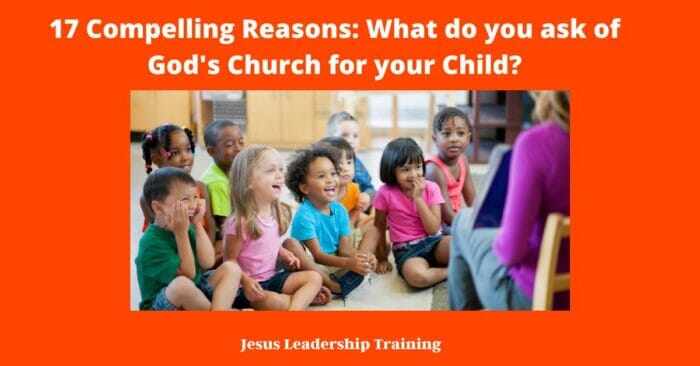
Today what is available as far as Christian Colleges.
Students today have many options when it comes to choosing a college. One type of college that has seen an increase in popularity in recent years is the Christian college. Christian colleges offer an education that is based on biblical principles and values.
Students at a Christian college can expect to receive an excellent education that will prepare them for a career in their chosen field.
In addition, they will also have the opportunity to grow spiritually and develop close relationships with other like-minded students. With so many great options available, there has never been a better time to consider attending a Christian college.
Here is a List of 9 Christian Colleges in the United States;
- Biola University
- Campbellsville University
- Cedarville University
- Concordia University Wisconsin
- Cornerstone University
- Dordt College
- George Fox University
- Hope College
- Houston Baptist University
- Many.Many.More
Students interested in attending a Christian college can choose from a variety of schools across the United States. There are large universities, small colleges, online schools, and everything in between. No matter what your educational needs are, there is sure to be a Christian college that’s the perfect fit for you.
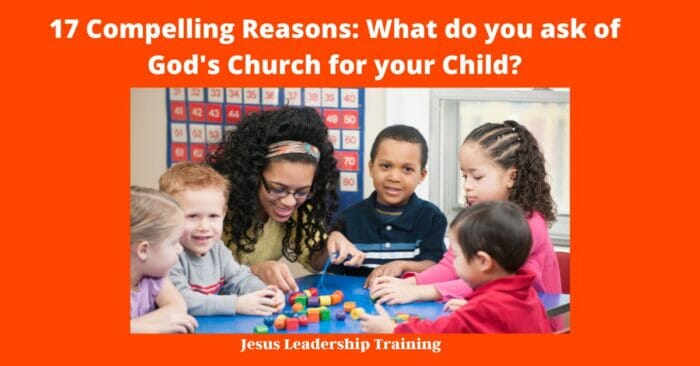
Examples What do You ask of God’s Church for your Child
- Pray for their safety: Ask God to watch over and protect your child from all harm, both physical and spiritual.
- Pray for their spiritual growth: Ask God to help your child grow in faith and understanding of the Bible, and to help them remain obedient to His will.
- Pray for their physical health: Ask God to grant your child good health, and to grant them the strength and energy they need to live a healthy and active life.
- Pray for their mental health: Ask God to provide your child with a sound mind, and to help them find peace in times of stress and anxiety.
- Pray for their academic success: Ask God to grant your child wisdom and understanding, and to help them excel in their studies.
- Pray for their relationships: Ask God to help your child develop healthy and meaningful relationships with family, friends, and peers.
- Pray for their future: Ask God to provide your child with a bright future, and to help them make wise decisions in life.
- Pray for their character: Ask God to help your child develop a strong moral character, and to help them be a positive example to others.
- Pray for their purpose: Ask God to guide your child in discovering their God-given purpose in life.
- Pray for their spiritual gifts: Ask God to help your child use their spiritual gifts in service to the church and their community.
Final Thoughts – What to ask of God’s Church for your Child?
Wise leaders understand the importance of helping young people find the Lord. Some congregations are doing this masterfully. Others have allowed this to fall through the cracks. It is a wise leader who sees the future in Young People.
God Bless Greg



